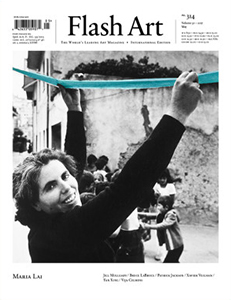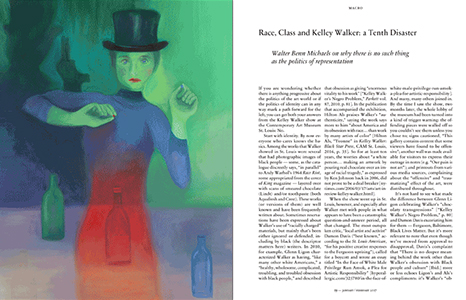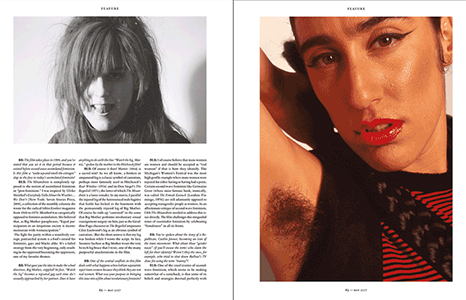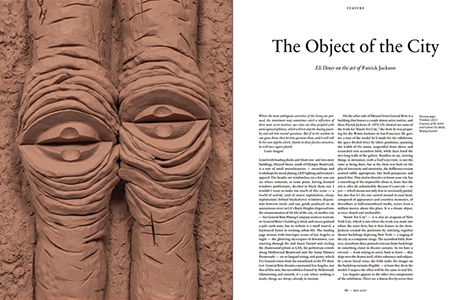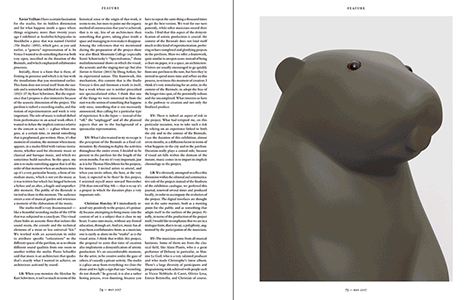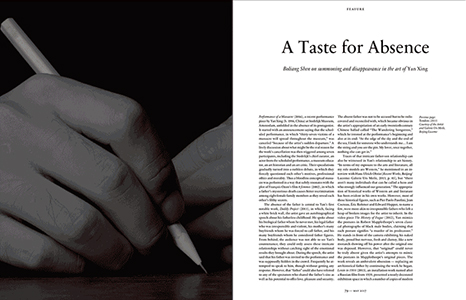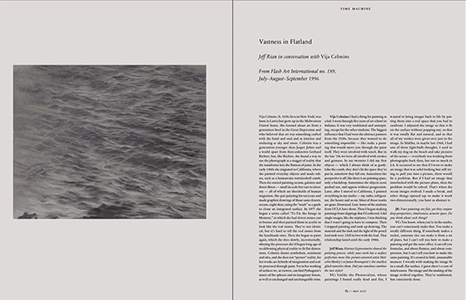The issue's cover is dedicated to the late Italian artist Maria Lai, whose work is on display at both Documenta 14 and the 57th Venice Biennale.
Lai's art developed in response to an art industry whose heteropatriarchal worldview—her teacher Arturo Martini saw her as a “little girl” from a
terra vergine—became grist for projects of collective empowerment. The cover is a photograph from Lai's action
Legarsi alla montagna (Tying Oneself to the Mountain, 1981) in which the artist physically connected the inhabitants of her native Ulassai with a single ribbon, tied from house to house and up the mountainside overlooking the town.
Barbara Casavecchia, who profiles the artist in this issue, calls
Legarsi alla montagna “a contemporary rite for conquering the fear of being devastated, wiped out, cancelled.”
Lai's projects, committed to tearing down normative understandings of the self, resonate with filmmaker Bruce LaBruce's responses to today's controversial and rapidly mutating
gender discourse. His latest film,
The Misandrists (2017), narrates the actions of a secret cell of
feminist terrorists plotting a new female world order, pandering to the “male gaze” while audaciously subverting it. As LaBruce explains to
Bruce Benderson: “I insert myself in the film as a nun, in drag, as a way of distancing myself from my own gaze, or making it self-conscious, to myself and to the audience. At the same time, the lesbians in the film are making and directing their own pornographic film, and that film, at some point, becomes the film we are watching. So in a sense the characters take over the making of the film.”

